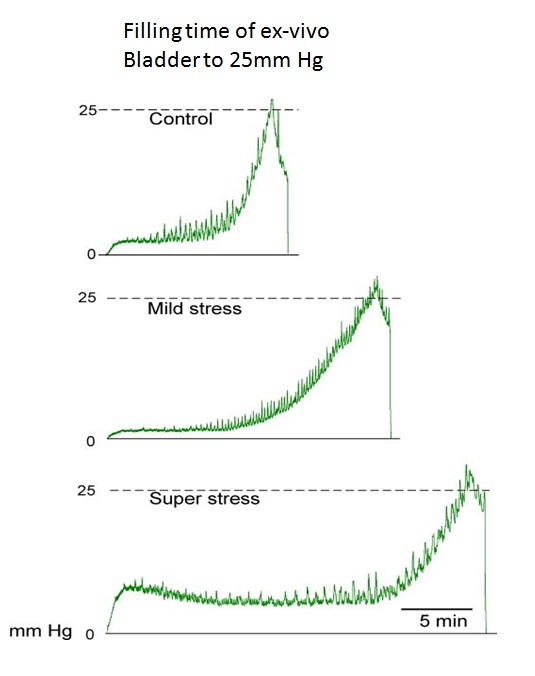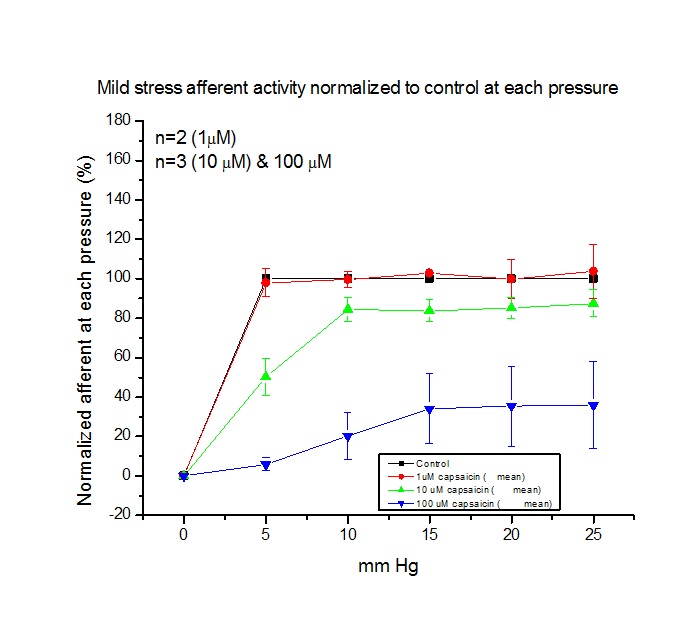|
Back to Annual Meeting Program
Upregulation of TRPV1 Vanilloid Receptor Increases Afferent Nerve Activity in a Bladder Model of Social Stress
Gerald Mingin, MD1, Thomas Heppner, PhD2, Hagop Sarkissian, MD1, Mark Plante, MD1, Mark Nelson, PhD2.
1UVM / Fletcher Allen, burlington, VT, USA, 2University of Vermont, burlington, VT, USA.
Purpose-
Social stress has been shown to impact bladder function in mice. In particular, we have shown that mild stress leads to bladder over-activity, with increasing levels of stress causing retention. We hypothesize that thatTRPV1 a member of the transient receptor potential vanilloid receptor family is up-regulated by social stress leading to an increase in afferent nerve activity in the bladder.
Methods-
Six week old, male, C57CBl6 mice were exposed for a total of 2 weeks at 1 hr. and 24 hours, via barrier cage to a C57CBl6 retired breeder aggressor mice. The bladders were harvested in order to perform ex-vivo pressure studies and evaluate bladder afferent nerve activity. Ex-vivo pressure studies were also performed with intravesical installation of the TRPV1 agonist capsaicin (1, 10,100 µM) In addition bladder samples were processed and Quantitative PCR was performed to measure TRV1, TRPV4 and TRPA1 transcripts.
Results-
We see a dramatic increase in filling times for the super stressed bladders in comparison to the mild stressed or control bladders. Afferent nerve activity was assessed in the control and mild stress mice after application of the TRPV1 agonist capsaicin (1, 10,100 µM). In the control group low concentrations of capsaicin increased afferent activity, while activity was decreased at 100 µM of capsaicin. In contrast capsaicin decreased activity in a concentration dependent manner in the mild stress group.
Discussion -
The application of capsaicin in the mild stress group demonstrates a consistent decrease in afferent activity, suggesting that stress increases the number of TRPV1 channels such that even the low concentrations of capsaicin are activating enough channels to cause a depolarizing block of the afferent nerve terminals. In addition, PCR transcripts of TRPV4 and TRPA1 channels were shown to be up-regulated in the mild stress group in comparison to the control and super stress groups.
Conclusion-
Social stress appears to alter bladder filling times as well as increase the amount of afferent activity in the ex-vivo bladder. TRPV1 channels may play a role in stress induced bladder dysfunction.


Back to Annual Meeting Program
|